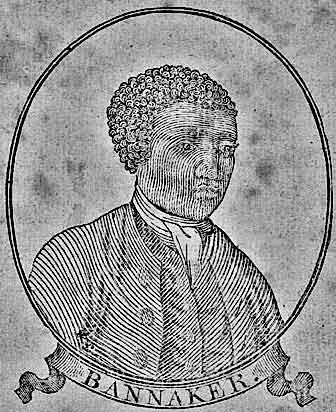Banneker, Benjamin

Banneker, Benjamin (1731-1806) Mathematician, Scientist, and Publisher of Almanacs: Banneker was born in Ellicott Mills, Maryland. The grandson of a white woman, Banneker studied at a school for free blacks near Joppa, Maryland. He receiving help with his more advanced scientific study from George Ellicott, a Quaker planter and philanthropist. Banneker is credited with having built a wooden clock, while he was still a young man, which maintained its accuracy throughout his life. In 1773, he began making astronomical calculations for almanacs, and accurately predicted an eclipse in 1789. Thomas Jefferson recommended him to be appointed to the commission to survey the District of Columbia. After helping survey the area in 1790 for the construction of Washington, D.C., Banneker began publishing an annual almanac for farmers. In August 1791, he wrote a letter to Thomas Jefferson, in which he asserted that blacks are intellectually equal to whites and pleads for a more liberal attitude toward blacks. The almanacs first appeared in 1792, continuing until 1802, and were the first scientific books written by African-Americans. When Major Pierre L'Enfant, the engineer who created the plans for the construction of Washington, D.C., left the project and took his plans with him; construction work could nevertheless continue, because Banneker had already memorized the plans. In addition to his work in astronomy, surveying and engineering, Banneker published a monograph on bees and calculated the cycle of the 17-year locust. After his death in 1806, many schools were named after him.
